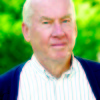Small World: Syria, Dangers ahead for America
By Henry Precht
BN Columnist
I don’t know Syria well — never worked there in my Foreign Service years, visited twice afterwards. The first trip was sponsored by an Arabophilic organization trying to build ties. I disappointed them by publishing an article after my return criticizing the Hafez al Assad regime for its autocracy.
Syria was one of those states carved out of the defunct Ottoman Empire after World War I. Like two others in the Fertile Crescent — Lebanon and Iraq — it is richly diverse with large communities of Sunni, Shia and Alewite (akin to Shia) Moslems, Christians and Kurds. In Lebanon and Iraq, the Shia were the largest group, until recently effectively ruled by Sunni. In Syria, the Assad family, Alawites, ran the country. Bashar al Assad, an ophthalmologist who didn’t plan a political career, succeeded his far-tougher father in 2000 when his elder brother died in an accident.
Pre-Assad Syria was plagued by palace coups; Hafez ended that in 1970. He also ruthlessly suppressed a Sunni (Moslem Brotherhood) uprising in the city of Hama in 1982. Well over 10,000 died. To add to his troubles, there was intermittent war with Israel and the call from time to time to restore order among warring factions in Lebanon. By the time of the Arab Spring in the Middle East Syrians had settled down and lived relatively harmonious lives in a secular state. There was hope that Bashar’s moves towards economic and political liberalization would grow.
That hope expired two years ago when protests erupted in a provincial city. The regime reacted with force. The rebellion spread, financed, in large part, by Saudi Arabia and Qatar. Sunni troops defected from Bashar and foreign fighters, including al Qaeda men, moved in. Next-door neighbors Turkey, formerly an ally and trade partner, and Jordan provided support for the rebels. The United States and Western Europeans openly called for Assad’s ouster and gave non-lethal aid to the rebels.
The regime fought back hard, aided diplomatically by Russia and more materially by Iran.
The result has been an increasingly deadly conflict that has taken tens of thousands of lives, made over a million Syrians refugees and ruined a peaceful state. The outlook, foreshadowed by the fragility of Lebanon and Iraq, is for worse times to come and the very real possibility that the conflict may spread across the region in a broad Sunni-Shia struggle. For many Sunni the war against the Assad regime is, in reality, a war against Shia Iran, Syria’s close ally. Israel and the United States could find themselves drawn into the strife. Bear in mind that Syria has stocks of poison gas.
What is to be done? What role for America?
If we are to hold true to our ideals and rhetoric, we should actively pursue an end to the civil war by pushing the badly divided rebel groups to sit down with government and work out an end to the fighting and a compromise on a new regime involving responsible elements from both sides. Assad will have to go (where?); he is responsible for too much bloodshed. Al Qaeda and other extremists will have to be excluded. United Nations or Arab League peacekeepers may have to be summoned to control the sporadic guerrilla warfare that will inevitably continue.
It will also be important to press the Saudis, Qataris and Turks to end their support for the rebels. That won’t be easy, especially when the United States gets serious — as it hasn’t so far — about ending the tensions with Iran. That will be essential, however, if the region-wide Sunni-Shia tensions are to be muted. We certainly should not find ourselves on one side or the other in that conflict. We have no dog in that fight.
Lacking space, I’ll pass on discussing an Israeli-Palestinian (and Syrian) peace, which we also ought to work hard for.
Finally, the administration will find itself besieged in Washington by neocons and other hawks who want a more active and lethal assistance to the rebels, e.g., no-fly zone, heavy weapons. They brought us the Iraq disaster and don’t want to miss another “opportunity†to demonstrate American power, regardless of the costs.
Henry Precht is a summer Bridgtonian.


